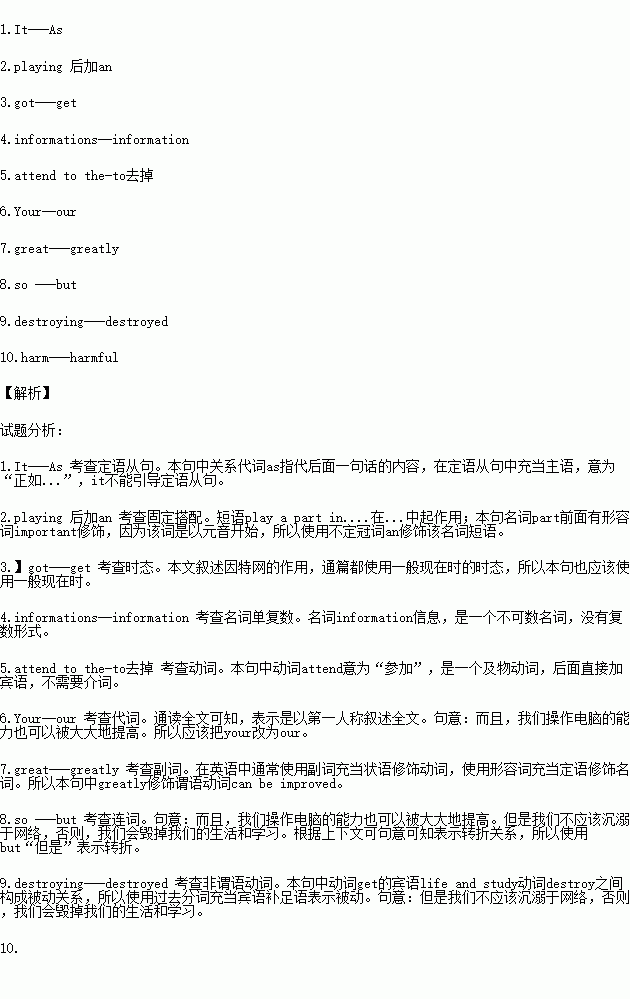题目内容
短文改错
文中共有10处语言错误。每处错误仅涉及一个单词的增加、删除或修改。
增加:在缺词处加一个漏字符号(∧),并在其下面写出该加的词。
删除:把多余的词用斜线(﹨)划掉。
修改:在错的词下划一横线,并在该词下面写出修改后的词。
注意:1. 每处错误及其修改均仅限一词;
2. 只允许修改10处,多者(从第11处起)不计分。
In my view, the Internet is helpful. It is known to all, the Internet is playing important part in our daily life. On the Internet, we can read news home and abroad and got as much informations as we can. We can also attend to the net school and read many books. We can even do shopping online.
Besides, your ability to operate the computer can be improved great. So we should not be addicted to the Internet, or we’ll get our life and study destroying. In addition, we should keep off the harm websites. Anyhow, this doesn’t prevent the Internet from becoming our friend.
练习册系列答案
 天天向上一本好卷系列答案
天天向上一本好卷系列答案 小学生10分钟应用题系列答案
小学生10分钟应用题系列答案
相关题目


 . machine B. street C. room D. car
. machine B. street C. room D. car